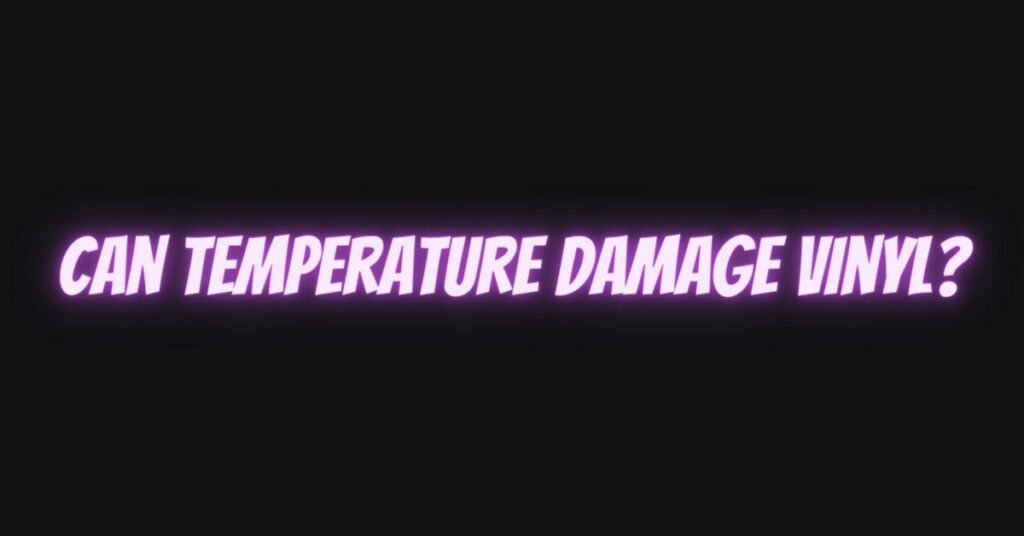Vinyl records are beloved by audiophiles and music enthusiasts for their rich analog sound and tactile appeal. However, vinyl is a delicate medium that can be affected by various environmental factors. One of the concerns that often arises is whether temperature can damage vinyl records. In this article, we will explore the impact of temperature on vinyl records and provide guidance on how to protect your cherished collection.
Temperature and Vinyl Records: An Overview
Vinyl records are typically made of polyvinyl chloride (PVC), a type of plastic. Like most plastics, PVC is sensitive to temperature variations. Extreme heat or cold can affect the physical properties of vinyl records and potentially lead to damage. Here are some ways temperature can impact vinyl records:
1. Warping:
Exposure to high temperatures can cause vinyl records to warp. Warping results in a non-flat shape of the record, making it difficult or impossible to play. The extreme heat softens the PVC material, allowing it to take on a new form when pressure is applied. If your records are stored in a hot environment, they can become permanently damaged.
Prevention: To prevent warping, it’s essential to store your records in a cool, dry place. Avoid exposing them to direct sunlight, which can significantly raise the temperature of the records.
2. Groove Deformation:
High temperatures can also affect the shape of the grooves on a vinyl record. When exposed to extreme heat, the grooves may become distorted, leading to sound quality issues and playback problems.
Prevention: Proper storage in a climate-controlled environment is crucial to prevent groove deformation.
3. Thermal Expansion and Contraction:
Vinyl records can also experience thermal expansion and contraction. When subjected to rapid temperature changes, the vinyl material can expand or contract, potentially causing stress on the record, which may lead to warping or other damage over time.
Prevention: It’s important to store your records in a stable environment with a consistent temperature. Avoid sudden and extreme temperature fluctuations.
4. Delamination:
Excessive heat can lead to delamination, which occurs when the vinyl separates from the label or other layers of the record. This can result in irreparable damage.
Prevention: Maintaining a consistent and moderate temperature in your storage area is the best way to prevent delamination.
Conclusion: Protecting Your Vinyl Collection
Temperature can indeed damage vinyl records, and the effects can be irreversible. To preserve the quality and lifespan of your vinyl collection, it’s essential to store your records in a cool, dry, and stable environment. Here are some key tips for protecting your vinyl records:
1. Store your records vertically to prevent warping.
2. Use climate-controlled storage solutions, such as record crates or shelves, to maintain a stable environment.
3. Keep your records away from direct sunlight and sources of heat, such as radiators or heaters.
4. Invest in protective outer sleeves to shield your records from dust, moisture, and temperature fluctuations.
By following these precautions and caring for your vinyl records, you can ensure that they continue to deliver the unique and cherished analog sound that vinyl enthusiasts hold dear.


